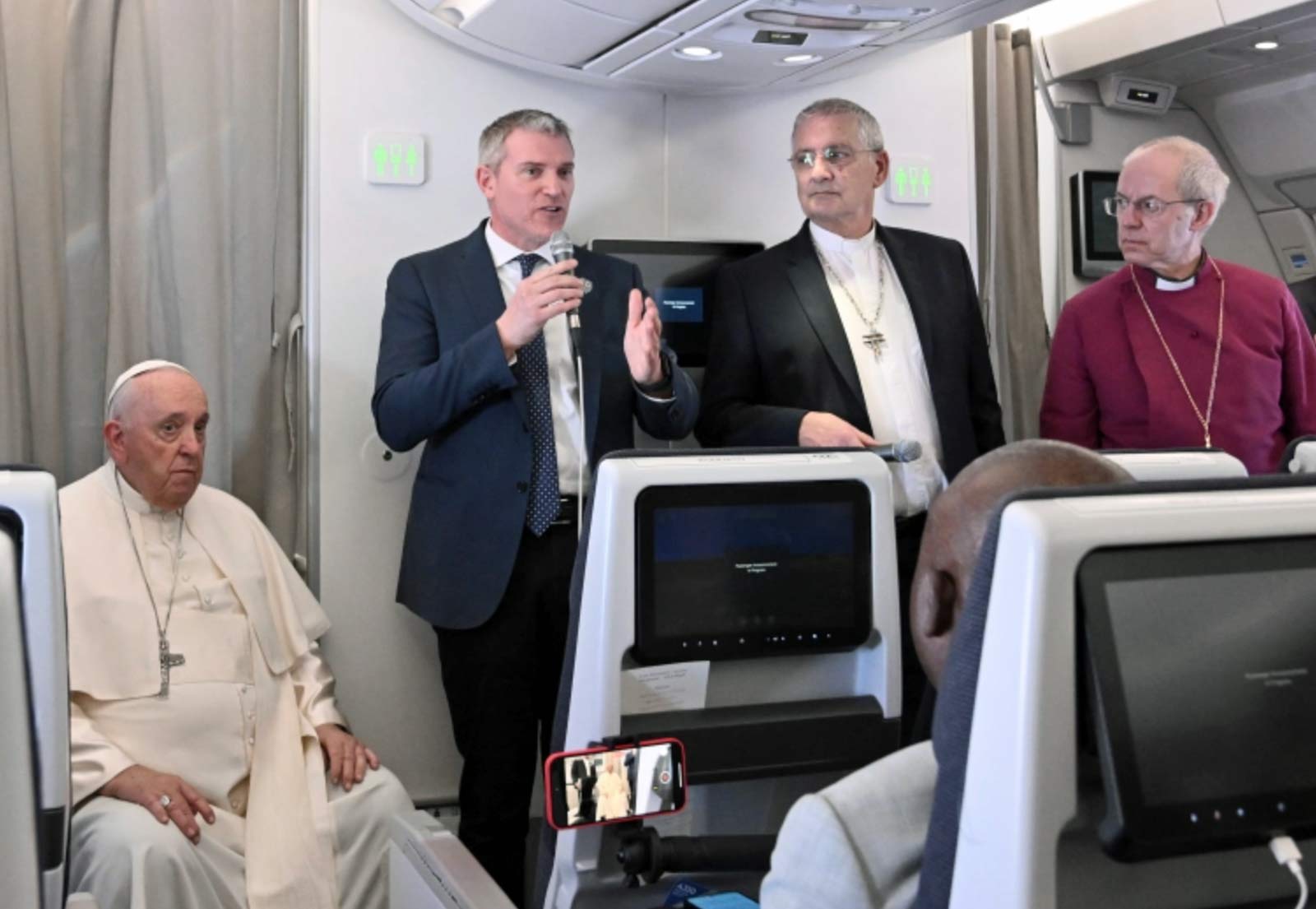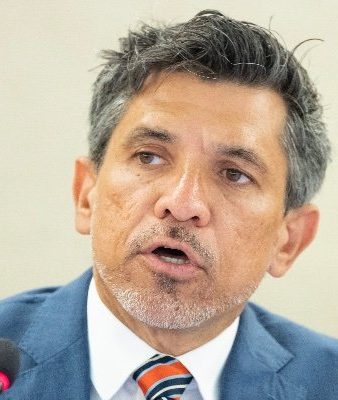Pope doubles down against homophobia, says anti-gay laws are a sin
Colin Stewart is a 45-year journalism veteran living in Southern…
Pope Francis has intensified his opposition to anti-homosexuality laws, declaring that such laws are sinful.
CLICK to receive an email notice of each new article on Erasing 76 Crimes

On Feb. 5, Reuters reported, the head of the Roman Catholic Church announced that “laws criminalising LGBT people are a sin and an injustice because God loves and accompanies people with same-sex attraction.”
Francis made that statement on a plane returning from a trip to South Sudan and the Democratic Republic of the Congo, accompanied by the leaders of the Anglican Communion and the Church of Scotland. Both men expressed their agreement with the Pope’s statements.
LGBTQ+ activists and officials welcomed the Pope’s remarks. They stated, as reported by the Washington Blade:

- “Being Catholic, I know the Catholic Church will respect the pope’s views and I hope the church in Africa starts working with us towards discrimination of homosexuality,” Frank Mugisha, leader of Sexual Minorities Uganda.
- Francis’ comments are “a message that needs to be assimilated by at least 70 countries that still criminalize homosexuality in some way, including 11 countries in which the death penalty can be applied.” — Toni Reis of Brazil, president of Aliança Nacional LGBTI+.
- “He is definitely my pope.” — Chantale Wong, the U.S. director of the Asian Development Bank, the first openly lesbian American ambassador.
- Thanks to Francis for “strong and clear words against the criminalization of LGBTIQ+ persons in the world.” — Xavier Bettel, the openly gay prime minister of Luxembourg.
- “Criminalization based on sexual orientation is contrary to international human rights law. I welcome this recognition by (the pope.)” — Victor Madrigal-Borloz, independent U.N. expert on LGBTQ and intersex issues.
Francis recently stated in an interview that homosexuality is not a crime.
Francis, who made his remarks in response to a reporter’s question aboard the plane returning from a two-country trip to Africa, received full backing of his comments from two other Christian leaders on the plane with him.
“The criminalisation of homosexuality is a problem that cannot be ignored,” said Francis, who then cited unnamed statistics according to which 50 countries criminalise LGBT people “in one way or another” and about 10 others have laws including the death penalty for them.
Sixty-six U.N. member states continue to criminalise consensual same-sex sexual relations, according to data from ILGA World – the International Lesbian, Gay, Bisexual, Trans and Intersex Association. In several countries where same-sex relations are illegal, punishments can include a possible death penalty.
“This is not right. Persons with homosexual tendencies are children of God. God loves them. God accompanies them … condemning a person like this is a sin. Criminalising people with homosexual tendencies is an injustice,” Francis said.
He noted that the Catholic Church’s catechism, or book of teachings, says same-sex attraction is not a sin but homosexual acts are. It also says that LGBT people should not be marginalised.
Francis mentioned his now-famous phase from soon after he became pope in 2013 that he could not judge people with same-sex tendencies who are seeking God. He also noted that while visiting Ireland in 2018 he said that parents could not disown their LGBT children, but had to keep them in a loving family.
The pope made the trip to South Sudan, the second country on the tour, as a peace pilgrimage with Archbishop of Canterbury Justin Welby and Moderator of the General Assembly of the Church of Scotland Iain Greenshields.
Both Christian leaders were on the plane returning from there and participated in the pope’s customary news conference with reporters, a first on any papal trip.

Both praised the pope’s comments.
“I entirely agree with every word he said there,” Welby said, noting that the Anglican communion was itself divided over gay rights and that two resolutions against criminalisation of LGBT people “have not really changed many people’s minds”.
Welby added: “I shall certainly quote the Holy Father. He said it so beautifully and accurately”.
Expressing his own support of Francis, Greenshields referred to the Bible, saying:
“There is nowhere in my reading of the four Gospels where I see Jesus turning anyone away. There is nowhere in the four Gospels that I see anything other than Jesus expressing love to whoever he meets and as Christians that is the only expression that we can give to any human being in any circumstance”.
Francis repeated that the Catholic Church cannot permit sacramental marriage of same-sex couples but that he supported so-called civil union legislation giving same-sex couples legal protection in issues such as pensions, inheritance and health care.




